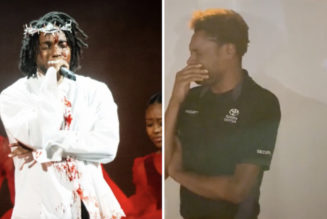
Music, a universal language that transcends borders, has an unparalleled ability to bridge gaps between diverse cultures, bringing people together in a harmonious exchange of ideas, emotions, and traditions. As we delve into the intricate tapestry of human societies, it becomes evident that music has played a profound role in connecting cultures throughout history. In this article, we will explore the powerful influence of music in breaking down barriers and fostering understanding among people from different corners of the world.
A Common Thread in the Human Experience
From the rhythmic beats of African drums to the intricate melodies of Indian classical music, and from the soulful blues of the American South to the enchanting tunes of classical European composers, music has always been a reflection of the human experience. Regardless of geographical location or cultural background, music serves as a universal means of expression, capable of conveying complex emotions, stories, and cultural nuances.
Music has the unique ability to tap into our deepest emotions and resonate with our shared human experiences. Whether it’s the joyous celebration of a wedding in India, the mournful lamentation of a funeral in Ghana, or the exuberant rhythms of a Brazilian carnival, music is an integral part of cultural rituals and ceremonies, connecting people on both emotional and spiritual levels.
A Tool for Cultural Exchange
One of the most remarkable aspects of music is its capacity to facilitate cultural exchange. As societies have become increasingly interconnected in our globalized world, music has played a pivotal role in promoting cross-cultural understanding. Musicians from diverse backgrounds collaborate, fuse their unique styles, and create something entirely new, blurring the lines between genres and cultures.
Take, for example, the genre of world music. This broad category encompasses a rich tapestry of sounds from various corners of the globe. Artists from different cultural backgrounds come together to create music that transcends borders and introduces audiences to the rich musical traditions of other cultures. Through world music, listeners can embark on a musical journey that transports them to far-off lands and exposes them to unfamiliar rhythms, instruments, and vocal styles.
Fusion and Innovation
The concept of musical fusion goes beyond world music. Musicians are constantly pushing the boundaries of their genres by incorporating elements from other cultures, creating innovative and exciting new sounds. This fusion not only produces captivating music but also fosters cultural exchange and appreciation.
For instance, the fusion of jazz and Indian classical music, as exemplified by artists like John McLaughlin and Ravi Shankar, has not only created incredible music but has also introduced listeners to the intricate rhythms and improvisational techniques of Indian classical music. Similarly, genres like reggae and hip-hop have borrowed elements from various cultures, making them not just genres of music but cultural movements that promote social justice and unity.
Building Cultural Bridges
Music festivals, which have become a global phenomenon, serve as a powerful testament to music’s ability to build cultural bridges. These events bring together artists from diverse backgrounds and attract audiences from all over the world. Festivals like the WOMAD (World of Music, Arts and Dance) and the Montreux Jazz Festival have become melting pots of culture, where attendees can immerse themselves in the sounds, tastes, and artistry of different cultures.
Additionally, music transcends language barriers, making it a potent tool for diplomacy and cultural exchange. Governments and cultural organizations often use music as a means to showcase their culture and foster international understanding. Cultural exchange programs, music tours, and collaborations between artists from different countries all contribute to promoting a more interconnected and harmonious world.
Skoove: A Harmonious Blend of Tradition and Technology
Online piano lessons, such as those offered by Skoove, have revolutionized the way people learn to play musical instruments. Skoove’s online piano lessons have gained popularity as a convenient and effective way to learn music, providing a seamless blend of tradition and technology.
Much like music itself, Skoove’s platform transcends geographical boundaries, allowing students from different corners of the world to access high-quality piano instruction. Whether you’re a complete beginner or an experienced pianist looking to refine your skills, Skoove offers lessons tailored to various skill levels. The platform’s user-friendly interface and well-structured curriculum make it accessible to learners of all ages and backgrounds.
Cultivating Cultural Awareness
Music not only connects people but also exposes them to different cultures and traditions. When learning to play an instrument like the piano through Skoove, students often encounter music from various parts of the world. They explore the rich heritage of classical compositions, delve into the intricate melodies of jazz, and even embrace the rhythmic beats of contemporary music. This exposure to diverse musical styles cultivates cultural awareness and appreciation, broadening students’ horizons beyond their own cultural backgrounds.
The ability to appreciate and perform music from different cultures also enables students to build connections with individuals from those regions. This shared passion for music provides a common ground for conversation and collaboration, transcending language barriers and forging bonds that extend beyond borders.
The Healing Power of Music
In addition to connecting cultures, music has a remarkable ability to heal and soothe the human soul. It serves as a universal source of solace during times of hardship and uncertainty. Throughout history, music has played a pivotal role in bringing communities together in times of crisis, offering comfort and hope when words alone fall short.
The global COVID-19 pandemic is a recent example of how music has brought solace and unity across borders. Musicians from all over the world turned to virtual performances and collaborations to uplift spirits and offer a sense of togetherness during lockdowns. These online musical initiatives transcended geographical limitations and connected people worldwide through the shared experience of music’s healing power.
Conclusion
In a world that sometimes seems increasingly divided, music remains a powerful force for unity and understanding. It transcends borders, languages, and cultural barriers, connecting people on a profound level. Music has the ability to spark conversations, build bridges, and inspire positive change. As we continue to navigate a complex and interconnected global landscape, let us not underestimate the role of music in fostering cultural exchange, promoting unity, and celebrating the rich diversity of our world. It is through the universal language of music that we can truly go beyond borders and embrace the beauty of our shared human experience.










